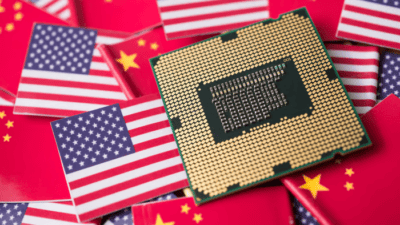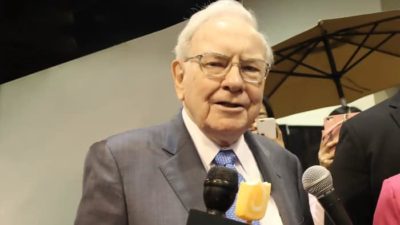This article was originally published on Fool.com. All figures quoted in US dollars unless otherwise stated.
This article was originally published on Fool.com. All figures quoted in US dollars unless otherwise stated.
The "Oracle of Omaha" didn't get that nickname by accident. In his 60-year career at Berkshire Hathaway, Warren Buffett has had a knack for seeing into the future. At least, it could seem that way, but Buffett doesn't have a crystal ball. Instead, he has a crystal-clear strategy and philosophy that guides every investing decision he's made. It made him a billionaire and it's made a lot of people who have adopted his approach a lot of money over the years.
Buffett believes in disciplined investing and that time in the market beats timing the market. Instead of scouring the market looking for a great deal on a stock, pay more attention to the businesses themselves, and then, "When you find a truly wonderful business, stick with it. Patience pays..."
One factor that makes a business "wonderful" is a fundamental competitive advantage that protects a business from competitors: a moat. As Buffett explained in his 2007 letter to shareholders: "The dynamics of capitalism guarantee that competitors will repeatedly assault any business 'castle' that is earning high returns. Therefore, a formidable barrier ... is essential for sustained success."
Here are two companies that Buffett loves and have significant moats.
1. There is a reason Buffett has stuck around Coca-Cola for so long
If you want to talk about moats, you'd be hard-pressed to find a bigger one that's been maintained for longer than Coca-Cola (NYSE: KO). The beverage giant is one of the most recognized brands in the world. It's so ingrained in our culture that large swaths of the South use it as a generic term for soda.
That brand protects it from upstarts vying for shelf space. It means any company trying to dislodge its hold has to spend ungodly amounts of money to begin to match the sort of recognition it has.
It's not just the brand that's valuable, the company is, too. Coke has grown steadily over the years and continues to gain ground. It is a proven, stable business that consistently finds ways to adapt to consumer demands. I have to note that Coke is priced at a slight premium at the moment compared to its competition. Its forward price-to-earnings ratio (P/E) is about 24. That's above PepsiCo's and Keurig Dr. Pepper's 20 and 18. It's a little higher, but not terrible. I still think it fits neatly in a diverse portfolio as an anchor of stability. Don't expect tech-like returns; expect consistency and a healthy dividend yield that grows year after year.
2. Amazon is an amazing company and Buffett knows it, even if he missed its meteoric rise
Amazon (NASDAQ: AMZN) has a lot of the qualities Buffett likes, but it's also a tech company. Buffett is fond of saying he doesn't invest in what he can't understand and a lot of tech falls under this category. Now, this is often taken to mean he doesn't understand the technology itself and sure, I doubt Buffett understands the intricacies of computer science, but what he is really saying is he doesn't understand the business. He cannot understand intuitively what the business will look like, say, 20 years from now.
In a sense, he's saying he can't accurately assess most tech companies' moats. It makes sense -- technology progresses in leaps and bounds and a company that appears to have a firm hold on a market can get displaced in a drop of a hat or frankly, the whole market can quickly become obsolete.
Buffett has made exceptions -- Berkshire's largest holding is Apple after all -- but this attitude has driven much of the company's decisions for years and it kept him from making the leap into Amazon, despite being a fan of the company. In fact, it wasn't even Buffett who made the original purchase in 2019, it was another manager at Berkshire. He's thankful Berkshire owns shares now, saying at an annual shareholder meeting that he "blew it" by not investing early on.
Amazon isn't your typical tech company. There is an incredible amount of physical infrastructure, real-world resources, and complex logistics that make directly competing with it expensive and nearly impossible. Beyond this, the company has built a brand that people really trust. In fact, it is the most trusted institution in the country. According to a 2023 poll by The Harris Poll and HarrisX, Americans trust Amazon more than the U.S. military or the Supreme Court. How many brands can say that?
Even if Berkshire only got in in 2019, the stock has just about doubled in that time and the future looks no different. It is pushing the bounds in artificial intelligence (AI), rapidly expanding its adtech business, and continuing to gain ground in e-commerce where it already absolutely dominates. I think Amazon is another no-brainer buy.
This article was originally published on Fool.com. All figures quoted in US dollars unless otherwise stated.
This article was originally published on Fool.com. All figures quoted in US dollars unless otherwise stated.









